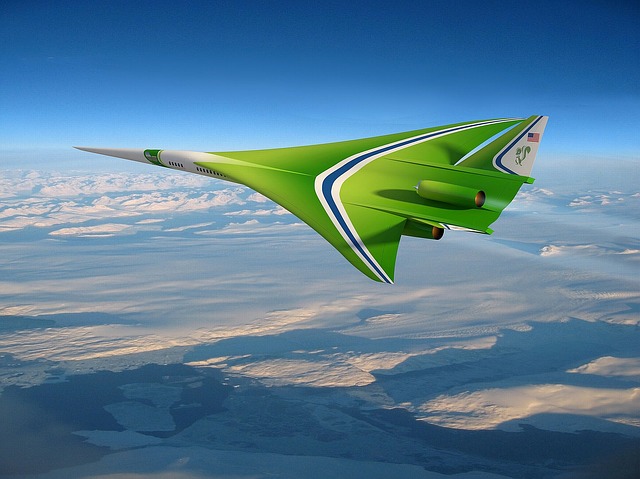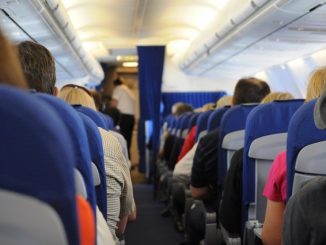
With the latest funding it received — a staggering $33 million in Series A funding from a group that includes 8VC, Caffeinated Capital, Palm Drive Ventures, RRE Ventures and Y Combinator’s Continuity Fund — it looks like all systems are go for Boom Supersonic‘s XB-1, also called the ‘Baby Boom’ (BB), which cost about $200 million to build. Aiming to be the fastest civilian aircraft in history, flying via Baby Boom can supposedly cut travel time by half — transatlantic trips will become mere day trips, while transpacific trips will be faster by 2 days. Putting that in perspective, a trip from New York to London will only take about 3 hours and 15 minutes; and flying from San Francisco to Tokyo will take just 5 hours.
As Boom Supersonic CEO/Founder Blake Scholl said in one of the company’s blog posts: “while we love the hard engineering and technical challenges, what really drives us is the enormous human benefit of faster travel.”

Boom Supersonic
With over 500 potential routes which can benefit thousands of travelers, Baby Boom is expected to fly at an altitude of 60,000 feet (higher than any other aircraft has ever flown), making the ride a smoother one with considerably less turbulence than what is typically experienced on conventional passenger flights. And because the plane will fly at a speed that breaks the sound barrier (Mach 2.2 equivalent to 1,451 miles per hour… Concorde only flew up to Mach 2.0), the trip will be a quiet one, with the transition from subsonic to supersonic flight barely even perceptible.
As an added bonus, its seats — which the company is hoping will cost the same as today’s business class after everything about it has been settled — will be a window and an aisle seat at the same time owing to its 2 single-seat row design.
With funding for Baby Boom now at $41 million, the company is set to finish building the XB-1 Supersonic Demonstrator so it can be ready for its first flight scheduled for next year. After that comes a series of safety tests on the way to being granted the FAA certification needed. If all goes well, the first passenger flight is expected to take place in the early 2020s. This will obviously earn BB the distinction of being the first successful commercial aircraft startup in almost a century.
Travel time that’s less than half of what we’re used to and at a cost that’s not as exorbitant as what’s expected – well, ‘where do I sign up’ goes without saying as that’s apparently the future we can all look forward to with Baby Boom. That said, however, it should be noted that after almost 30 years of stagnant travel time growth, the world is more than ready for a real transformation with the advancement of hypersonic planes.
Disclaimer: This page contains affiliate links. If you choose to make a purchase after clicking a link, we may receive a commission at no additional cost to you. Thank you for your support!



It isn’t speed, the subject is time. We save time every day by using cars, telephones, internet, automatic clothes washing machines. Modern civilization is about saving time, being more productive, so we can have more time to relax with out loved ones. But we don’t always use our “saved time” this way.